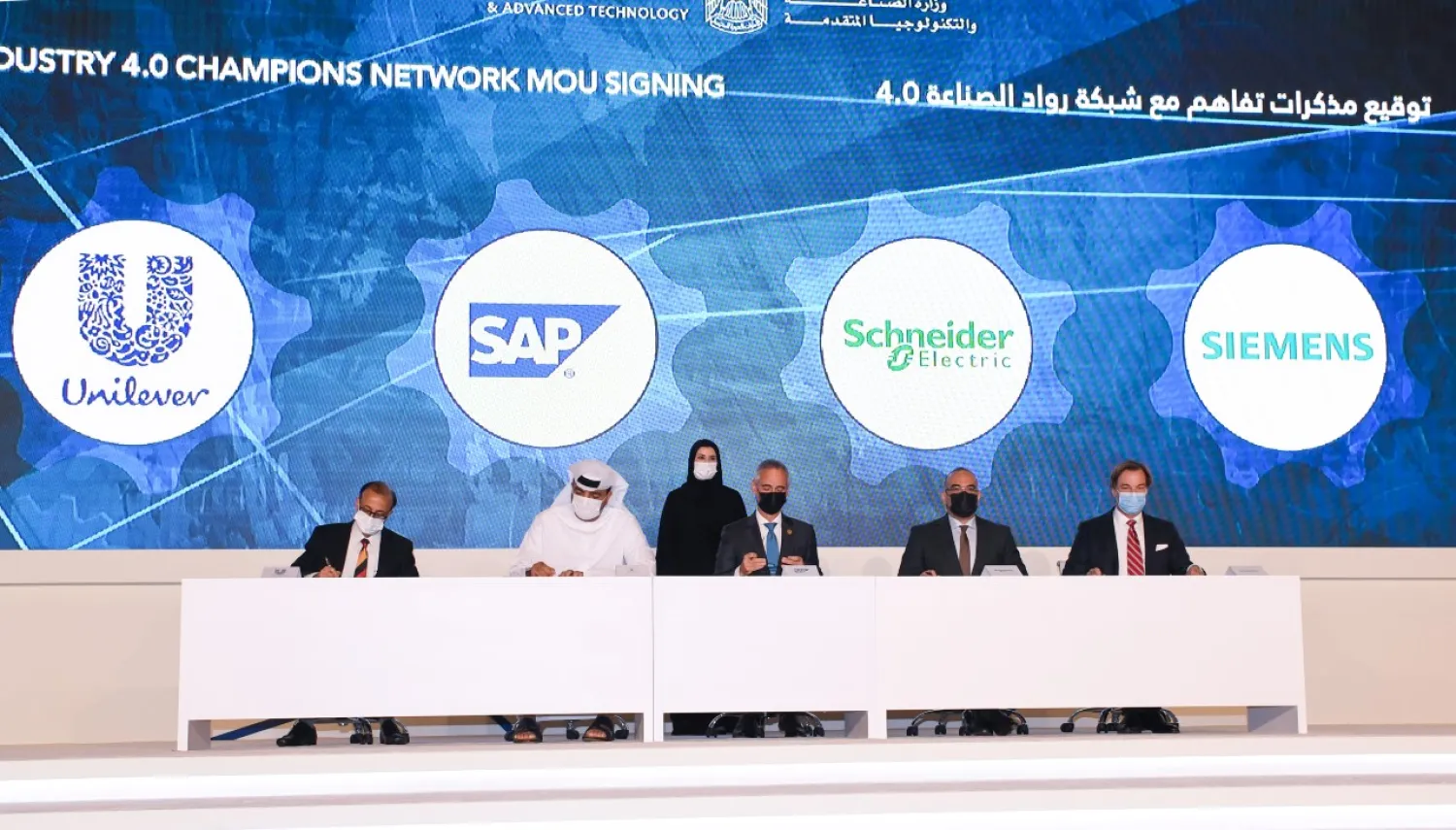The UAE signed Memoranda of Understanding (MoUs) with 12 industrial entities to kick-start the newly-announced Fourth Industrial Revolution Program, known as "UAE Industry 4.0," as part of Projects of the 50.
The signing was witnessed by Minister of Industry and Advanced Technology Sultan al-Jaber, Minister of State for Advanced Technology Sarah al-Amiri, and Under-Secretary of Ministry of Industry and Advanced Technology Omar al-Suwaidi.
"UAE Industry 4.0" is designed to accelerate the integration of 4IR solutions and applications across the UAE's industrial sector to enhance the UAE's overall industrial competitiveness.
"UAE Industry 4.0" aims to increase industrial productivity by 30 percent and add $6.8 billion to the national GDP in ten years. It is a key pillar of the UAE's Operation 300Bn which aims to increase industry contribution to national GDP to $81.6 billion.
It will do so through several core elements, including establishing the Champions 4.0 Network, in which leading local and international companies will unite to share best-practice in the deployment of 4IR technologies across the UAE's industrial sector.
Participating entities include the Abu Dhabi National Oil Company (ADNOC), EDGE, Honeywell, Unilever, Ericsson, Schneider Electric, Emirates Global Aluminium, Microsoft, CISCO, SAP, AVEVA, and Siemens.
The Champions Network will then support the creation of organizations by 2031 while also cultivating the optimum business environment to establish or attract 500 tech companies by the same year.
Jaber explained that the Ministry of Industry and Advanced Technology focuses on increasing the industrial sector's contribution to the national GDP, enabling economic diversification and transforming into a knowledge-based economy.
The UAE boasts a vibrant industrial sector that has made a significant contribution to our rapid economic development. And with the collaboration between our public, private and academic sectors, we have fostered an enabling industrial ecosystem," he indicated.
"The technologies of the Fourth Industrial Revolution have the potential to strengthen our core industries, develop domestic production capacity, and build new capabilities to meet the needs of the future."
Jaber added that as the country embarks on the next 50 years, UAE Industry 4.0 will be crucial to its continued global competitiveness and standing as an incubator of pioneering ideas and new industries.
"UAE Industry 4.0 is the cornerstone, and the first step, on which we seek to advance the national industrial sector and enable comprehensive and sustainable economic growth," said Amiri.
She indicated that the agreements signed with the economic development partners in Abu Dhabi, Dubai, and Ajman would promote 4IR solutions across the UAE's industrial sector.









